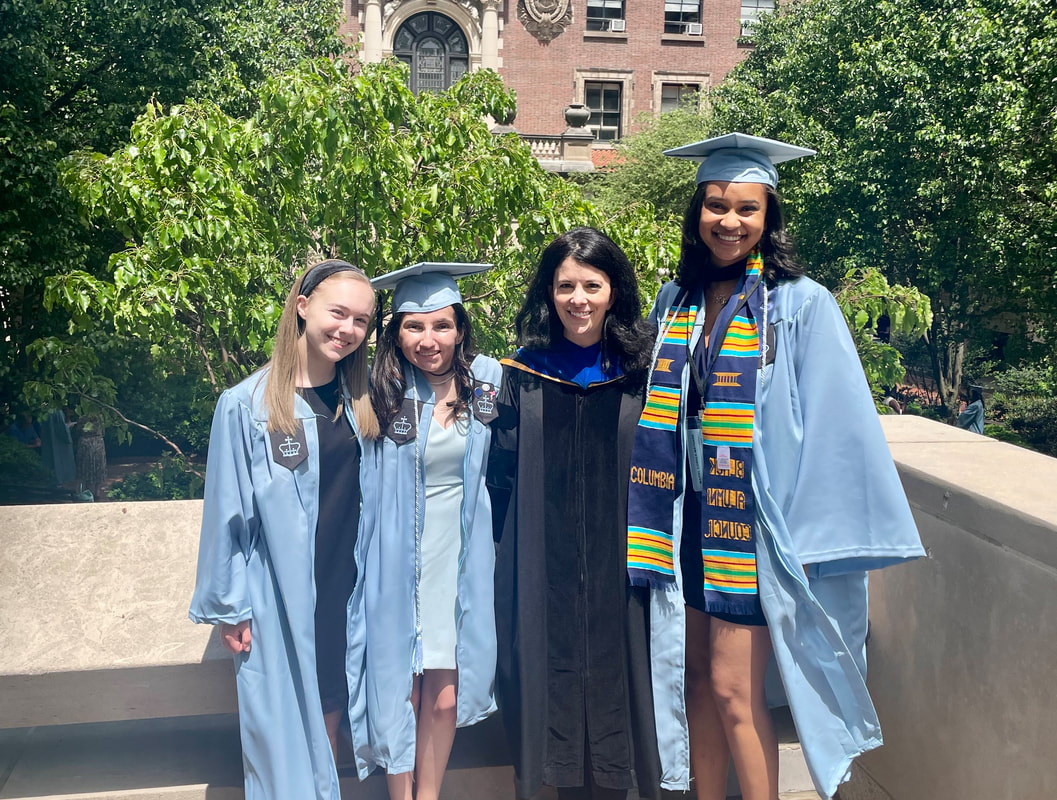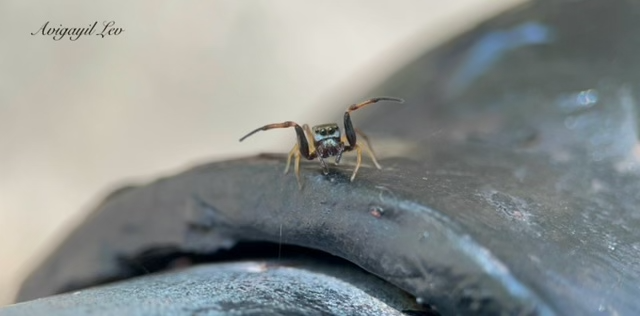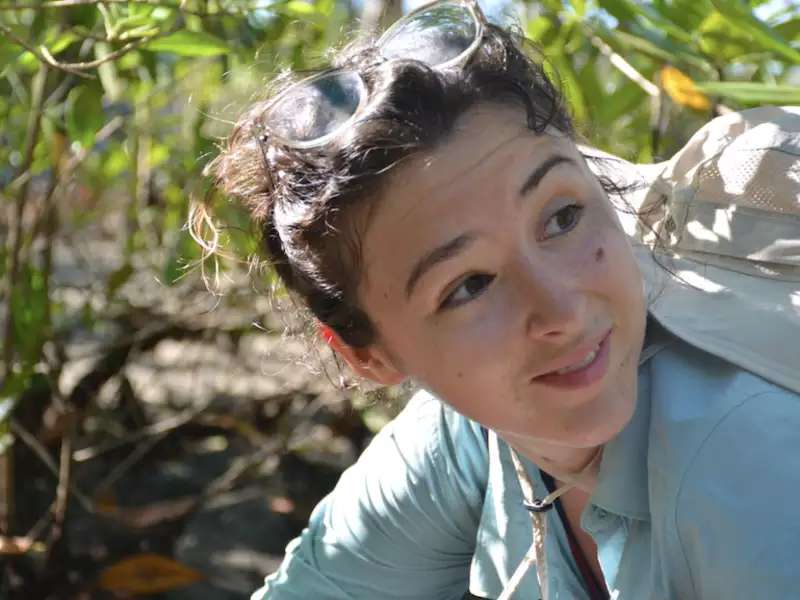What led you to working in the Pischedda Lab?
The semester before I joined the lab I took Animal Behavior with Professor Pischedda, and it was my favorite class I've ever taken. I thought it was really interesting. I liked setting up experiments that helped us determine how certain behaviors evolved. Because I loved that class so much, I reached out to Professor Pischedda and joined the lab for SRI. I also did my senior thesis project working in the lab. After graduating, I wanted to get some more independent research experience before applying to graduate school and I got the opportunity to continue with my lab as a technician.
We study sexual selection, primarily focusing on male mate choice in fruit flies. Most Drosophila melanogaster males prefer to mate with larger females, because those larger females have higher fecundity and will give the males more offspring. This ultimately increases the male's fitness. Males will court large females more often and more vigorously. We've looked at different factors that may influence how male mate choice evolves, and what will affect their preferences.
What do you enjoy about being a lab tech?
Once I became a research technician, I was able to basically devote all my time to my research. It was like taking my favorite part of my college experience and only focusing on that one component. Also, when I was an undergrad, I was only working on one project in the lab, and that one project was my focus. Now that I'm a research technician, I'm involved in everything that happens in the lab. I am familiar with the projects that other people are doing, and that gives me a better understanding, broadly, of how the different projects fit together and how one project will answer a question for a different project. I have more of an understanding of all the projects that we're doing and I have more input on the research.
What are your plans for the future?
I really, really love doing research and that's what I want to do with my life. So I'm looking to get a PhD, more in the field of ecology, evolution, and animal behavior. Typically when you are applying for a PhD in, let's say molecular biology, you're primarily applying to programs you like. However, when you're applying to a PhD for something like ecology, you're applying more to work with a specific PI. So you have to look for a specific lab and a specific kind of research that fits your interests. Since it's a little more niche, it's harder to really find the right kind of place.
I really want to be studying behavior in spiders, especially the different kinds of mimicry behaviors. I just love spiders. I think they're great. Spiders are very very diverse and people don't realize quite how diverse they are. There are spiders that have no eyes. There are spiders that have six eyes. There's one species of jumping spider that is herbivorous, and primarily eats plants.
I'm especially fond of jumping spiders because, aside from the fact that they're very cute, they're very intelligent.
Some of them display really cool mimicry. There are some spiders that look like ants, and there are some spiders that act like ants.
Some of my favorite spider species are in the genus of ant mimicking spiders called Tutelina. They don't really look like ants when they’re still, but they mimic ants when they move by waving their front legs in the air like ant antennae. I think it’s very cool. They also eat ants, which makes them different from many other ant-mimicking species.
I'm super interested to know how this behavior evolved, how that behavior helps them catch and eat ants (if it does). I'm also interested to know if they use other mimicking behaviors that we don't know of. Maybe they're leaving chemical trails or something that mimics ants in a way that’s not obvious to us as humans. I have so many questions about these little spiders that I haven’t yet found answers to!
Spiders are very very diverse and people don't realize quite how diverse they are. There are spiders that have no eyes. There are spiders that have six eyes. There's one species of jumping spider that is herbivorous, and primarily eats plants.
What are some things you do in your free time?
My favorite thing to do in my free time is to take walks in parks and look for cool spiders or insects. I’ve recently become very interested in insect/arachnid photography, and I like to photograph spiders and insects, especially bees and wasps. If you’re ever interested, I can show you the best places on campus to find jumping spiders or mud daubers, which are some of my favorite wasps.
Other than that, I like to read, and I listen to quite a lot of Taylor Swift.
Learn more about Avigayil Lev
- More about the Pischedda Lab
- Find her most recent research here
- FATIMA BAGOM '26





